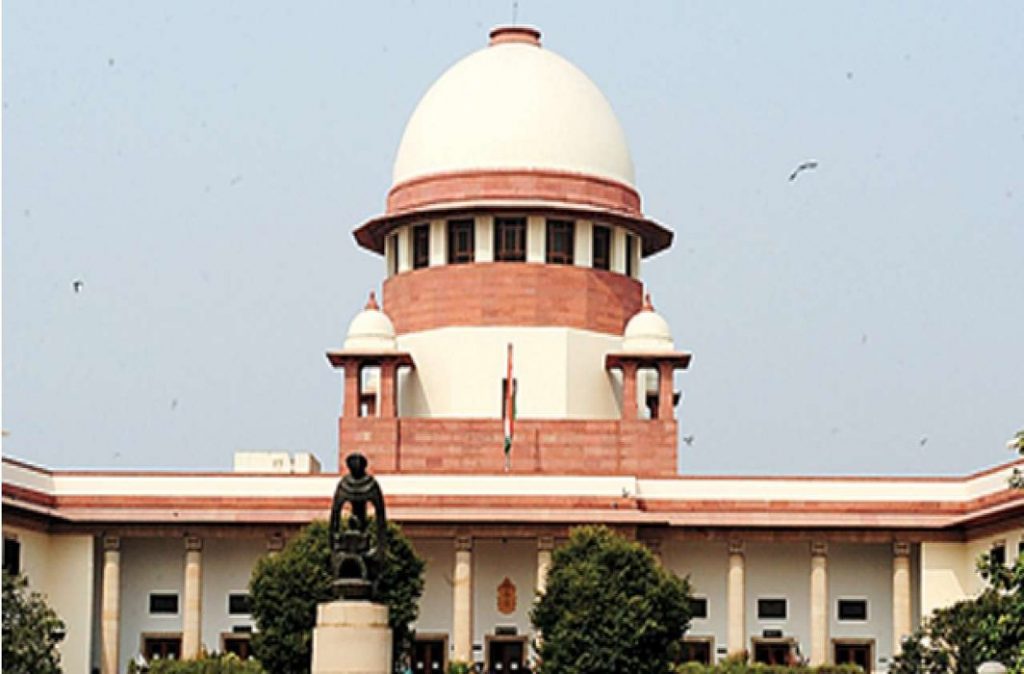New Delhi: A nine-judge Constitution Bench of the Supreme Court Thursday reserved its order for Monday after a day-long hearing on whether a reference made to the larger Bench could have been made by a five-judge Bench, while hearing review petitions challenging the Sabarimala judgment.
The court will frame the questions of law after pronouncing the order. “The order will be pronounced Monday… and the issues will also be framed Monday,” said the Bench, headed by Chief Justice SA Bobde and comprising Justices R Banumathi, Ashok Bhushan, L. Nageswara Rao, Mohan M. Shantanagoudar, S Abdul Nazeer, Subhash Reddy, BR Gavai and Surya Kant.
The Bench is to decide if these are essential religious practices and if so, to what extent the courts can interfere. The court is likely to begin hearing the matter next week.
The Chief Justice queried senior advocate Fali S Nariman about the Delhi Judiciary Officers’ case where he had argued and had referred to a principle in Halsbury, according to which the Supreme Court could exercise jurisdiction with no bar.
Many senior advocates involved with the Sabarimala verdict review argued that the top court couldn’t refer questions of law, while dealing with review petitions, to a larger Bench.
The Chief Justice after hearing the arguments observed by making a reference order the court had not prejudicially affected anyone’s rights. It might be the most innovative idea, but it had not affected any rights, he observed.
Solicitor General Tushar Mehta, representing the Centre, opened arguments supporting the reference to the larger Bench and emphasised it had nothing to do with the Sabarimala review.
In November 2019, the five-judge Bench through a majority 3:2 decision didn’t refer the review to the larger Bench and instead referred larger questions on religious right and the scope of judicial scrutiny.
The Centre’s top law officer cited the apex court decision in the Navtej Johar case, where a five-judge Bench struck down Section 377 of the IPC, even as the curative petition against the 2013 decision of the Division Bench that upheld the provision was pending. “If there was a question of law, the court can constitute a larger Bench to settle the issues,” contended Mehta.
Submitting that the reference to the larger Bench was not maintainable, Nariman said the order passed in November was a mere adjournment and couldn’t be equated as a reference. “When questions have been long settled, the top court can’t unsettle them using its inherent powers,” contended Nariman.
Senior advocate Jaideep Gupta, representing the Kerala government, also opposed the reference to the larger Bench and insisted the nature of the review proceedings and the reference were different, and in fact were in conflict.
To this, the Chief Justice said the judges had doubt about the correctness of their decision.
Gupta said unless there was an error in law, “You can’t review a case based on a law laid down for the future. The review can’t be decided post-reference, if it does then the question of law decided in the reference will become a ground in the review. It becomes an appeal.”
The conflict would arise where the court couldn’t review a case based on law, which was newly decided in the reference, he said.
Senior advocate A.M. Singhvi, representing the Travancore Devaswom Board, supported the reference to the larger Bench citing the the top court’s inherent powers. He also cited the Navtej Johar case.
Senior advocate K. Parasaran also concurred with Singhvi’s view.
(IANS)
